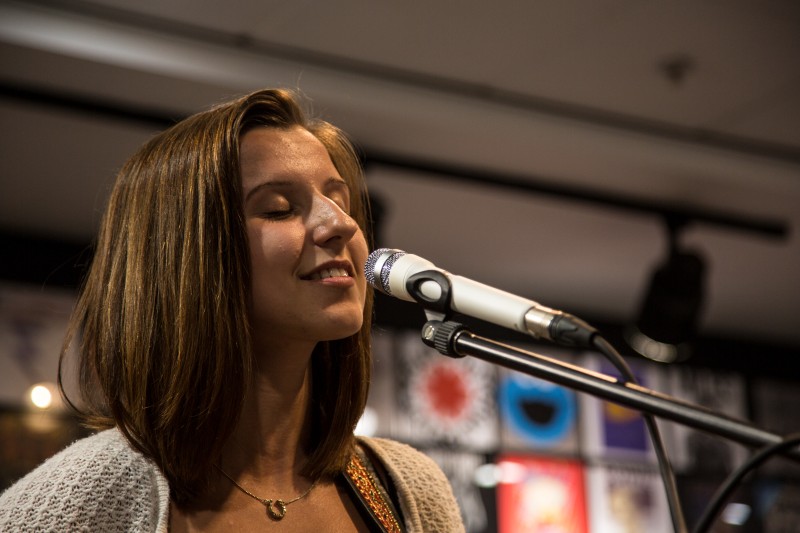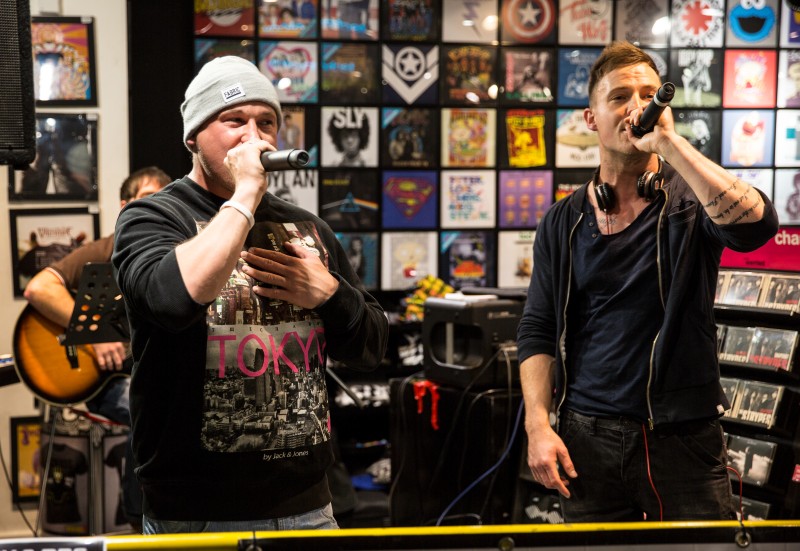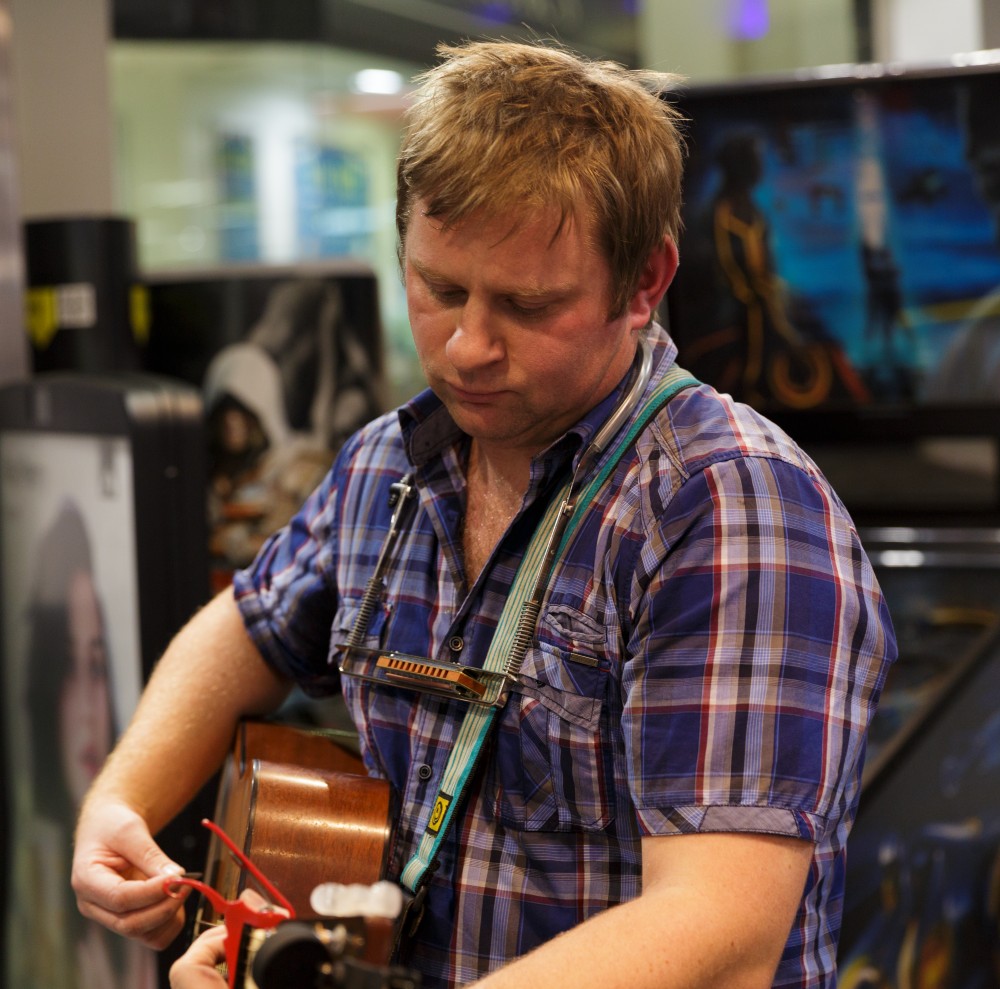Old Susannah aka Suzanne Kelly casts an eye on the past week’s vibrant and dynamic events.
 Tally Ho! It’s been bonfire night, which here in Torry means another 7 weeks or so of fireworks at night.
Tally Ho! It’s been bonfire night, which here in Torry means another 7 weeks or so of fireworks at night.
The Members (‘Sound of the Suburbs’) played at the Moorings; the Gerry Jablonski Band is touring Poland, the Opera was in town, and the fireworks went well (better than the last time, when everything went off all at once).
Giant balls and lights are being hung on Union Street for the holidays. Let’s hope the balls don’t drop, like they did a last year.
I bought a wonderful new mattress from Glencraft; the company continues to employ and support people with visual problems and others with special abilities.
It’s just as well it’s still here, those nice ConDems have a plan to save money by taking it away from several thousand people who get independent living benefit. At present a court appeal is saving the day. Let’s hope commonsense prevails at least once. If those individuals and corporations which avoid paying tax paid their fair share, we’d possibly not be in such a position. But they know who they are, and they’re holding onto their money.
Aberdeen Positive (cleverly branded AB+), had one of their inspiring cultural talks this week.
They’re going to give us a cultural identity brand, which is great. BP is of course involved, as are various other businessmen, and RGU admin types (who I’m sure don’t take any direction from web-happy Sir Ian Wood, who is more or less in charge at RGU). Old Susannah tragically couldn’t make their last meeting, but was told a riveting time was had by all.
Sadly someone dared to bring up the subject of Union Terrace Gardens; this dismayed the convener. Happily just at the end, our man from RGU (who’s actually lived in 27 different places, so he proudly boasts – wow!) closed by saying we need a public square. Of course we do.
I’ve spent a happy few hours this past week at BrewDog, you’ll be surprised to hear. They’ve run out of their new creation ‘Hello my name is Sonja’ – which is a blueberry packed delight. Hope it’s coming back soon. There was some pumpkin brew from the US, which was subtle, and perfect for this time of year. And yes, I’ve even bought a few more shares. Me and a few thousand other people.
BrewDog are hiring, reinvigorating the drinks sector in the UK and abroad, and are expanding. If my few quid contribution helps, then I’m glad of it. Cheers all.
It’s a good thing people’s noses don’t actually grow when they lie like Pinocchio’s did; or else some of the great and the good would have to either clam up or hire permanent plastic surgeons. Truth, or the lack of it, has featured largely this past week in the news.
In mythology, Diogenes searched endlessly for an honest man. It seems like he’d have his work cut out for him today. Here are a few definitions to illustrate.
Lying: (English Gerund) To deliberately distort the truth.
Times have changed; and I think people are getting much more honest than they used to be. After all, absolutely no one, no matter what kind of situation they might get caught in, admits to lying these days.
We’ve seen the ‘Plebgate’ case unfold: first policemen accused senior Tory MP Andrew Mitchell of a foul-mouthed rant over a bicycle, which upset the public. Later, Channel 4 obtained the footage, showing no public within earshot at all. The police logs seem to have been creative writing exercises. What followed, when the police and their superiors were asked to explain further, saw one or two innocent little white lies coming to the fore.
Mitchell lost his job, had never used the word ‘pleb’ and it’s proved no such rant actually happened.
Mitchell may have lost his job over this, but don’t worry: all the police involved are still in place, ready to continue to fight crime in their usual virtuous fashion.
The BBC reported:-
“A police officer has apologised to MPs for an “inadvertent error” in evidence to them about the “plebgate” affair.
“Det Sgt Stuart Hinton, of Warwickshire Police, said he had made an “honest” mistake in a previous hearing held by the Home Affairs Committee last month.
“He also said he regretted the “distress” felt by Andrew Mitchell and his family during the whole saga.
“But Sgt Chris Jones, of West Midlands Police, said he had not misled MPs over his disciplinary record. On Tuesday, he told MPs 13 complaints had been made about him but none had been upheld.”
http://www.bbc.co.uk/news/uk-politics-24813974
So, no lying there then, just the odd ‘inadvertent error’ and the odd ‘mistake when talking to the Home Affairs Committee. Could happen to anyone.
Just because we assume the police can and should have a head for accuracy and details is no reason to think they’re superhuman. In fact Sgt Jones also managed to forget any claims had ever been lodged against him, but this was soon proved to just be another little mistake on his part.
He seemed very believable to me in his court appearance; first of all, he’s a policeman, and second of all, he was wearing a nice suit. Did the policeman admit to blatantly lying by making up this little story that cost someone a job? Not a bit of it. He does however regret things. I’m sure he does.
So how did the press get all the previous alleged dirt on former MP Mitchell? Er, the police leaked it to them, but I’m sure it was all well intentioned. It’s very bad form for the BBC and Channel 4 to point out these flaws, and to remind us that policemen from the slightly powerful union would wear ‘police pleb’ t-shirts to show solidarity for their ‘inadvertently erring’ colleagues. That’s what friends are for.
It was all going so well against the businessmen involved, who had been granted export licences to Iraq
Perhaps we had expected the politician was lying in the ‘Plebgate’ saga; after all, there have been one or two small instances of politicians lying to us in the past. Even Tony Blair decided to turn an intelligence dossier into a spectacular, sensational, frightening case for attacking Iraq.
Weapons of Mass destruction were poised and ready to take the UK out within 45 minutes; of course we had to have a tiny little war, even if a few million UK residents marched to protest against it. After all, we’re better off, the veterans who went there are better off, and of course the Iraqi people are better off. As is Halliburton and as are a few US tycoons.
Aside from the dodgy dossier, we had the earlier instance of saintly Alan Clark, purveyor of truth back in the days of Thatcher. The Matrix Churchill trial saw gagging orders handed out like sweeties. It was all going so well against the businessmen involved, who had been granted export licences to Iraq. It might have looked like the Government was caught in a web of blatant lies, but that wasn’t the case.
Alan eventually admitted in the face of evidence that he was just being ‘economical with the actualité’. So, once again, no real lying was going on.
Don’t worry, Aberdeen makes the grade when it comes to having honest police. We now have our own local policewoman who managed to avoid being branded a liar and/or snoop.
WPC Amanda Dixon decided that she needed to know a wee bit more about her new Peterhead neighbours; the poor policewoman was in fear they would break the law and rob her. She then merely bent the law a little, and used the police’s STORM database to do a little pre-emptive spying on them. Sure, it might have been illegal, but she is a policewoman after all.
While in the old days, if people wanted to snoop on neighbours they would simply hide behind twitching net curtains and peer, it’s nice to know Dixon is willing to go just that little bit better.
I can’t think why she got into any trouble for illegally accessing personal data in contravention of the Data Protection Act, but the story has a happy ending: she didn’t have to go to court.
Police don’t lie, and they don’t break data protection rules, fabricate notes, and leak info to the papers
Obviously admitting no lawbreaking, Dixon bravely admitted being ‘nosy’.
Thankfully her lawyer told the sheriff that Ms Dixon was too mentally fragile to appear in court and such appearance would be detrimental to her mental health.
I, for one, am so very grateful to the legal system for sparing her this huge trauma of attending court, which clearly would be something a policewoman would never need to do normally as part of her job. You might think she was just trying to evade justice, but surely it is health after committing a crime that’s more important than the people being spied on or the law being upheld.
Now that the police have displayed such compassion to spying Dixon, I await their expedited compassion in offering compensation to George Copland. If you need a reminder, Copland was arrested days after a siege at his empty flat.
The flat was meant to have a gunman in it, although it was empty, and whoever said they were looking in the windows at a gunman would have had to go very close to the house, set away from the main road and peer in deliberately. Perhaps it was Dixon? Anyway, that was in June. No doubt a fair, full compensation deal is winging its way to Copland as you’re reading.
Police don’t lie, and they don’t break data protection rules, fabricate notes, and leak info to the papers. They might sometimes make mistakes, but don’t we all. And if police like Ms Dixon spy, I’m sure it’s for our own good in the end. No doubt her neighbours think so.
Spying: (English Gerund) The act of covertly obtaining information without the person or organisation being scrutinised giving consent or having knowledge.
In this Age of Information, the only thing that’s successfully stopping wars, terrorist attacks, organised crime, and Policewoman Dixon’s neighbours from undoubtedly robbing her is spying. I am very glad big brother is watching. I am very glad that the ‘all-seeing eye’ on American dollar bills stands for something less nebulous than some Masonic symbolism.
Spying is only done when necessary. Sixty Million Spanish telephone calls were intercepted by the US. Yes, that hardly seems like any, and that’s actually the number of calls for a whole year’s worth of listening in. I’d have thought it would be a higher figure, after all the population of Spain is about 47 million: that’s only about a call and a half per citizen.
However, Germany’s Angela Merkel is a bit put out the Yanks have been spying on her personal calls, and there is some evidence to point to the UK helping the US out in these covert activities.
As so many right-thinking people claim ‘if you’re not doing anything wrong, then you don’t have anything to hide’. Quite so. Perhaps we should just give up on the idea of individual freedoms, privacy, intimacy and individuality if it means we’ll all be safer.
It would be churlish to bring up the fact that back in the day, famous cross-dresser and paranoiac J Edgar Hoover had files on millions of Americans. If he needed one of these people to spy on other people, all he would have to do is threaten to expose the personal info he’d collected on them. If we could only get back to those good old secure, happy days – Communist witch hunts, paranoia, government control.
Thankfully, it seems we’re heading there.
Sometimes it might seem that the security forces and police get a bit sensitive about sharing the details of their own activities – particularly when these activities fall into grey areas of law. No doubt if they want our lives laid bare for their legal inspection (or for a less than legal whim, Ms Dixon), they’ll become completely honest, transparent, and law-abiding as well.
I feel sorry for those who make their living from spying on the innocent, that nasty whistleblower Edward Snowden has made life tricky for them and their crucial work. He’s obviously let the world know the extent of US snooping for his own personal gain.
He’s currently living a luxurious life as a fugitive in Moscow somewhere (no – I don’t know where to any government spooks reading this). After all, the people who are willing to look into your and my personal business for reasons ranging from national security to Dixon’s ‘nosiness’ are just trying to make an honest living.
Well, have a good week everyone. And mind what you put in that email, or say on your mobile. Big brother is listening, taking notes, and will be in touch.
- Comments enabled – see comments box below. Note, all comments will be moderated.
 As one raised on titles such as Memoirs of an Infantry Officer, Goodbye To All That and All Quiet On The Western Front, I was excited at the prospect of viewing the First World War through the lens of a serving soldier, albeit a Medical Officer enlisted in the Cameronians.
As one raised on titles such as Memoirs of an Infantry Officer, Goodbye To All That and All Quiet On The Western Front, I was excited at the prospect of viewing the First World War through the lens of a serving soldier, albeit a Medical Officer enlisted in the Cameronians.















